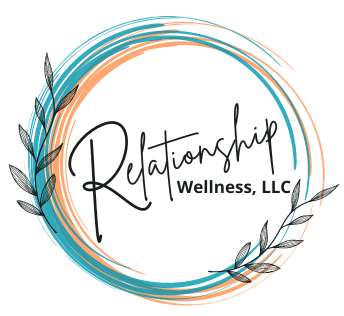How to Get Help When You Can’t Afford Therapy
 Many people wait longer than they need to before hiring a professional counselor. And there’s plenty of resources available in addition to counseling. Of course, we all need to know how to get help when we can’t afford therapy. Recently while reading my book, Beyond Messy Relationships one reader quoted. “I feel as if I’m getting all of the benefits of your counseling without giving you anything in return.”
Many people wait longer than they need to before hiring a professional counselor. And there’s plenty of resources available in addition to counseling. Of course, we all need to know how to get help when we can’t afford therapy. Recently while reading my book, Beyond Messy Relationships one reader quoted. “I feel as if I’m getting all of the benefits of your counseling without giving you anything in return.”To clarify, we all know that reading books are never a substitute for professional counseling. Yet, there are ways you can enhance your well-being, especially when you can’t afford therapy.
Not many therapists are so gracious to write their personal stories along with taking the mystery out of counseling. I’ve personally felt like a lone ranger until I read Lori Gottleib’s book,Maybe You Should Talk To Someone. Lori’s writing style is both engaging and humorous. She opens up her vulnerable self as a psychotherapist and pulls us into the stories of three clients… some of which you won’t like at first. Yet, throughout their journeys, you identify with and learn to love them.
We all should talk to someone from time to time. And you can get help when you can't afford therapy. Share on X
Lori helps us honor our human struggles. Yet she gives us so much more. Her book appeals to those of us in this mental health profession. But in reality, we can all benefit from her wisdom, transparency, and expertise.
For now, here’s ways to get help.
Get help by reading, or listening to books
If you don’t care to sit with your nose in a book this summer, then you can listen. It’s so easy to do menial tasks or take a walk in the neighborhood with earbuds and a smart phone in your pocket.
You can sign up for an audible account, that comes with a [first] free month trial. Or, use your local library for downloadable audible or digital books. Of course, you can check out print books!
Reading or listening to books can be the first step to getting help.
But, there’s more.
Get help by participating in community groups
You can start with a google search to find the right support you need. Therapy or community groups can get us out of our isolation and rigid thinking. Groups normalize our human struggles. We realize that we’re not alone.
For those of us who are faith-based, we value the Scripture passage in the gospel of Matthew. “For where two or three are gathered together in My name, I am there in the midst of them.” (Matthew 18:20) It’s true that we can grow, and become resilient through gathering with others who have been through similar struggles.
Support groups help us break free from isolation. They help us normalize our human struggles and give us hope for transformation. Share on X
Here’s some groups I recommend to my clients.
-
Celebrate Recovery (CR) is a faith-based group helping people with “hurts, hangups, and habits.” This is not only for those recovering from substance abuse or addiction.
-
Alcoholics Anonymous (AA) is for those recovering from alcohol addiction. Other groups from this model include sex, narcotics and other addictions.
-
Al-Anon is for family members of those with addictions. They offer eduction for families otherwise unaware of how they enable the addiction.
-
Depression Bipolar Support Alliance (DBSA) is for families and individuals. Those who struggle with depression, isolation, and mood disorders get support.
-
Support groups from NAMI (National Alliance on Mental Illness)
-
Church groups
Get help by attending events
Look for community resources for events that enhance your well-being. There are plenty of online events that support your mental and emotional resilience.
The main goal is to look for support. My message here? I want to honor every human being’s dignity, value, and worth. And I’m and advocate for human resilience. I whole-heartedly believe you have what it takes to nurture your heart, soul, and mind.
Whether or not you’re in counseling now, you will get benefits from reading Beyond Messy Relationships, or Maybe You Should Talk To Someone. More than anything, you do have what it takes. Access the resources. You know how to get help when you can’t afford therapy.


